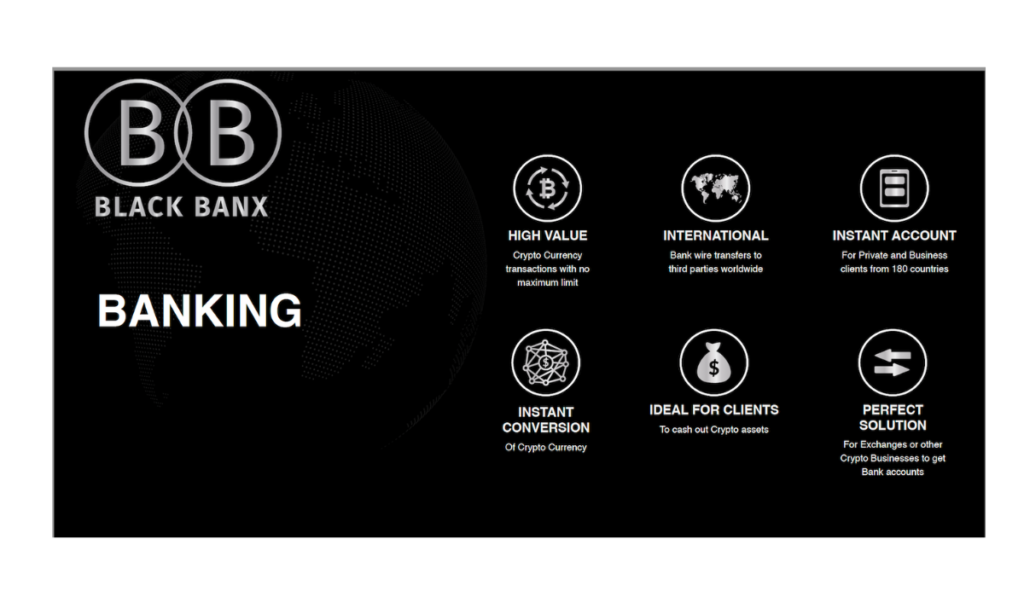In the rapidly evolving world of financial technology, compliance and market dynamics are undergoing significant transformations, driven by macro trends that are reshaping the industry. The regulatory environment is advancing in tandem with technological developments, influencing the strategic decisions and policies of financial organizations.
One such organization is Black Banx, a global digital banking powerhouse that now epitomizes this dynamic interplay.
Founded by German billionaire Michael Gastauer in 2014, Black Banx (initially WB21) was born out of a need to address the inefficiencies of cross-border banking, account opening in foreign countries, and international wire transfers.
With a vision to revolutionize the traditional banking sector, Gastauer set the stage for a fintech saga that would not only embrace but also shape the future of financial regulations. The organization’s swift adaptation to regulatory changes while pushing the boundaries of what’s technologically possible has allowed it to remain at the forefront of the digital banking revolution.
The Dawn of Fintech Innovation
Black Banx’s journey began with a clear mission: to provide instant account opening for clients worldwide and facilitate global real-time fund transfers in multiple currencies, both FIAT and crypto. The fintech firm’s rapid growth — from launching to the public in 2015 and earning as many as 200,000 customers in the first year to hitting a profit before tax US$289 million in 2023 — is a testament to its innovative approach and its ability to adapt to and anticipate regulatory shifts.
This meteoric rise was fueled by a relentless pursuit of breaking down financial barriers and offering seamless banking experiences to millions worldwide, regardless of geographical boundaries. With each regulatory change, Black Banx not only adapted but also leveraged these moments as opportunities to innovate further, enhancing their platform to meet and exceed new standards.
Navigating the Regulatory Waters
As the fintech landscape evolved, so did its regulatory environment. The future of financial compliance is being reshaped by digital transformation, as highlighted in recent studies and articles. Regulatory changes, driven by technological advancements and fintech developments, are influencing the strategic decisions of financial organizations.
The automation of customer onboarding and Know Your Customer (KYC) processes has become a key focus area, with regulatory bodies imposing stricter compliance requirements to combat financial fraud and enhance security. These changes reflect a broader trend towards more transparent, secure, and customer-centric financial services, a trend that Black Banx has not only embraced but also championed from its inception.
Black Banx’s response to these regulatory challenges has been proactive and strategic. By leveraging its technology to offer one of the easiest sign-up processes, requiring just a photo ID, Black Banx has managed to keep its platform accessible to clients from 180 countries, all while adhering to evolving compliance standards. This ease of access, combined with a comprehensive suite of services including multi-currency accounts, instant payments, and cryptocurrency trading, has positioned Black Banx as a frontrunner in financial inclusion and innovation.
The firm’s approach to compliance and innovation demonstrates a deep understanding of the delicate balance between fostering financial innovation and ensuring the integrity and security of the financial system.
The Impact of Regulatory Changes on Fintech and Black Banx
The regulatory landscape for fintech is becoming increasingly complex, with authorities worldwide implementing measures to mitigate risks while fostering innovation. For example, the European Union’s upcoming Artificial Intelligence Act and the Markets in Crypto Assets Regulation (MiCA) are set to introduce new compliance obligations for fintech firms operating within the EU.
Similarly, in the United States, recent bank failures have prompted calls for strengthened regulation and oversight, affecting fintech startups reliant on traditional banking partners. These developments underscore the importance of agility and foresight in the fintech industry, qualities that Black Banx has demonstrated consistently as it navigates through these regulatory changes.
Black Banx’s growth strategy has cleverly navigated these regulatory nuances. By expanding geographically and diversifying its services, the company has not only tapped into new markets but also mitigated the risks associated with regulatory changes in any single jurisdiction.
Furthermore, Black Banx’s commitment to innovation, particularly in blockchain and AI, positions it well to adapt to and benefit from regulatory trends that aim to promote technological advancements in financial services. This strategic approach has allowed Black Banx to not only survive but thrive in the face of regulatory challenges, proving that innovation and regulation can indeed go hand in hand.
The Symbiosis of Regulation and Innovation
The fintech industry’s future lies at the intersection of innovation and regulation. Black Banx’s journey is a shining example of how a fintech company can thrive amidst regulatory challenges by staying ahead of the curve, innovating responsibly, and prioritizing customer needs. As regulations continue to evolve to keep pace with technological advancements, Black Banx’s agile and forward-thinking approach will undoubtedly remain its greatest asset.
In navigating the shifting regulatory landscape, Black Banx and its peers are not just complying; they are actively shaping the future of financial services. As this dynamic interplay between regulation and innovation continues, the ultimate winners will be the consumers, who stand to benefit from more secure, accessible, and efficient financial services. The story of Black Banx illustrates the power of fintech to transform the banking industry, making it more inclusive, innovative, and resilient. It is a testament to the potential of fintech firms to not only adapt to regulatory environments but to thrive within them, driving forward the future of finance.
